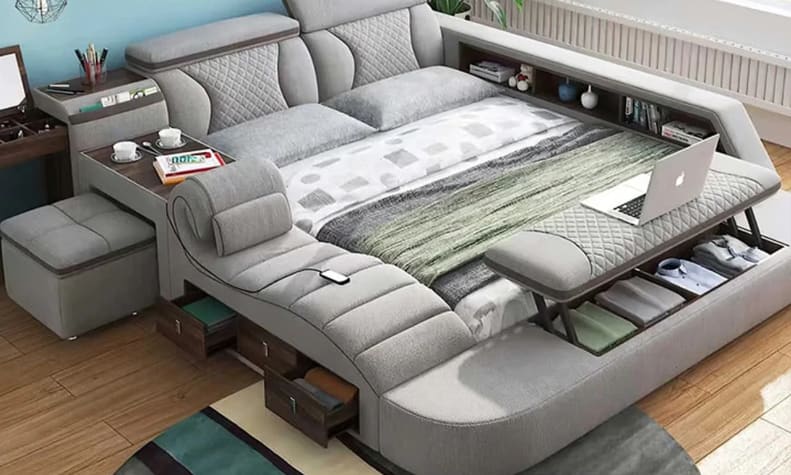Essential Considerations for Choosing Custom Cabinet Makers
Selecting the right cabinet maker for your storage solutions is a crucial decision that impacts both the functionality and aesthetics of your space. Custom cabinet makers offer personalized options that mass-produced alternatives simply cannot match. Whether you're renovating your kitchen, organizing a cluttered garage, or designing an efficient home office, understanding how to evaluate and select a skilled cabinet manufacturer will ensure your investment yields beautiful, durable, and practical storage solutions tailored to your specific needs.

What Makes a Quality Custom Cabinet Maker?
Quality custom cabinet makers distinguish themselves through several key attributes. First, they demonstrate extensive experience and specialized training in woodworking and cabinetry. Look for professionals with portfolios showcasing diverse projects and styles, indicating their versatility and skill range. Reputable cabinet makers typically belong to professional organizations like the National Kitchen and Bath Association or similar trade groups, which often require adherence to quality standards.
Additionally, superior cabinet manufacturers use premium materials—solid hardwoods rather than particleboard, high-grade plywood for cabinet boxes, and quality hardware that ensures smooth operation for years to come. The hallmark of exceptional craftsmanship appears in the details: perfectly aligned doors, seamless joints, consistent finishes, and meticulous attention to customization needs.
How to Find the Right Cabinet Maker for Your Project
Finding the right cabinet maker begins with thorough research. Start by seeking recommendations from friends, family, or neighbors who have recently had custom cabinets installed. Online platforms like Houzz, HomeAdvisor, and local business directories can provide lists of cabinet manufacturers in your area, complete with customer reviews and ratings.
When evaluating potential candidates, schedule in-person consultations to assess their communication style and understanding of your vision. During these meetings, ask to see samples of their previous work, preferably projects similar to what you’re planning. Request references from past clients and follow up with them about their experiences. The ideal cabinet maker will listen attentively to your needs, offer constructive suggestions based on their expertise, and demonstrate transparency throughout the planning process.
Understanding Cabinet Maker Cost Structures
Custom cabinet costs vary significantly based on several factors. Materials represent a substantial portion of the expense, with hardwoods like oak, maple, cherry, and walnut commanding different price points. Design complexity including specialty features such as pull-out organizers, built-in lighting, or curved elements will increase costs. Additionally, finish quality—from simple paint to hand-rubbed stains or specialty glazes—impacts the final price.
Cabinet makers typically price their work using one of three approaches: per linear foot, per cabinet box, or as a complete project quote. Understanding which method your chosen professional uses helps set realistic budget expectations.
| Cost Factor | Entry-Level Range | Mid-Range | Premium |
|---|---|---|---|
| Materials | $80-150 per linear ft | $150-250 per linear ft | $250-500+ per linear ft |
| Labor | $35-50 per hour | $50-75 per hour | $75-125+ per hour |
| Complete Kitchen (avg) | $5,000-10,000 | $10,000-30,000 | $30,000-80,000+ |
| Storage Cabinets (per unit) | $200-400 | $400-800 | $800-2,000+ |
Prices, rates, or cost estimates mentioned in this article are based on the latest available information but may change over time. Independent research is advised before making financial decisions.
Comparing Different Cabinet Manufacturers
The cabinet manufacturing industry offers a spectrum of options, from large production facilities to small boutique workshops. Large manufacturers produce cabinets at scale, often offering quicker turnaround times and potentially lower costs, but with somewhat limited customization. Semi-custom manufacturers represent a middle ground, providing predetermined sizes with various customizable options for doors, finishes, and features.
True custom cabinet makers create entirely bespoke solutions designed specifically for your space and needs. These craftspeople typically operate smaller workshops where they personally oversee quality control throughout the building process. While their timeline may be longer and costs higher, the result is cabinetry perfectly tailored to your specifications and space requirements.
Key Questions to Ask Before Hiring a Cabinet Maker
Before committing to a cabinet maker, ask these essential questions to ensure they’re the right fit for your project:
-
Can you provide a detailed, itemized quote explaining all costs?
-
What is your timeline for both design and fabrication phases?
-
Do you handle installation, or will I need to hire a separate contractor?
-
How do you address potential issues or changes during the project?
-
What warranty do you offer on both craftsmanship and materials?
-
What type of wood, hardware, and finish options do you recommend for my specific needs?
-
Do you have insurance and appropriate licensing for my area?
-
How do you handle deposits and payment schedules?
The answers to these questions will reveal not only the cabinet maker’s professionalism but also their commitment to transparent business practices and customer satisfaction.
Evaluating Cabinet Durability and Construction Methods
Superior storage cabinets stand the test of time through quality construction methods. When evaluating cabinet makers, inquire about their preferred joinery techniques. Dovetail joints and mortise-and-tenon connections offer superior strength compared to simple butt joints secured only with glue and screws. For drawer construction, look for solid wood with dovetailed corners rather than stapled particleboard.
Cabinet box construction should feature solid plywood rather than medium-density fiberboard (MDF) or particleboard for areas exposed to moisture or heavy use. Hardware quality is equally important—soft-close hinges, full-extension drawer slides, and solid handles or pulls ensure smooth operation and longevity. By understanding these construction elements, you can better assess the value and projected lifespan of your investment in custom cabinetry.
By carefully considering these essential factors when choosing a custom cabinet maker, you’ll be well-positioned to select a professional who can transform your storage needs into beautiful, functional cabinetry that enhances your space for years to come.




